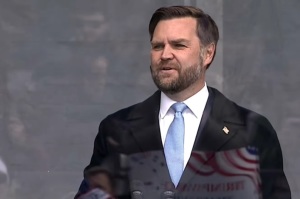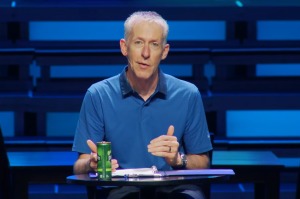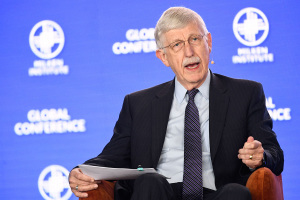Will Romney's Run Elevate Mormonism Into Mainstream Christianity?
As former Massachusetts Gov. Mitt Romney continues to grab victories on the road to the Republican Presidential nomination, some are wondering whether his rising popularity might also help Mormonism garner widespread acceptance in society.
Dr. Craig Blomberg, a distinguished professor of New Testament at Denver Seminary in Littleton, Colo., shared with The Christian Post that Mormonism is definitely becoming a prominent topic of discussion for Americans – but despite claims of others to the contrary, Romney's popularity might not be enough to elevate it to mainstream status.
Romney, who is a member of the Church of Jesus Christ of Latter-day Saints (LDS), has focused his campaign more on his policies and his record than his religion. Mormonism, however, is still considered a non-mainstream belief by many Christians in the country, with some, like Robert Jeffress, the evangelical senior pastor of the 10,000-member First Baptist Church of Dallas, even calling it a cult and asking people not to vote for Romney based on his involvement with the LDS Church.
"Evangelical Christians should not vote for Mitt Romney because he's a Mormon, therefore not a real Christian," Jeffress said.
"Historically, evangelical Christianity has never embraced Mormonism as a branch of Christianity. Mormonism has always been treated as a cult. In fact, the Southern Baptist Convention, which is the largest Protestant denomination in the world, officially labels Mormonism as a cult." he added.
Former member of the Mormon Church, Beth Johnston of Idaho, laid out a number of articles of faith that Mormons profess, showing both similarities and differences with mainstream Christianity.
"The main difference between Christianity and the LDS is that they don't believe in grace. And they don't even use the same terminology – to them, they are Christians, so to accuse them of not being a Christian turns them off. We're not even speaking the same language," she said.
Matthew Bowman, an LDS Church member who holds a doctorate in U.S. religious history from Georgetown University and who is a visiting assistant professor of religion at Hampden-Sydney College in Virginia, talked about his new book, The Mormon People: The Making of an American Faith on MSNBC's "Morning Joe" program about how Mormonism is on the rise and is becoming a more established religion in American society.
"Through the years, people have accused Catholicism as a cult – Judaism was also considered a cult at one time," Bowman reminded. "Many religions that are now in the mainstream were once considered 'weird' or 'cultish.' The same accusations now being thrown at Mormonism were thrown at Catholicism when John F. Kennedy ran for president. So Mormonism would appear to be about 50 years behind the Catholic Church in gaining mainstream acceptance."
An opinion piece on News24.com shared an overview of how Christianity itself progressed from a "cult" in the times of the Roman Empire to become the largest religion on the planet today, and suggested that Americans embracing Romney contributes to the "evolution" of Mormonism into mainstream status in the U.S.
"This process of evolution is continuing in religion. Think how views on homosexuality have changed in the last few years. In our parents' generation – no church would have accepted any form of homosexual relationship as it's specifically been listed in the Bible as a sin – and yet nowadays it's normal to see homosexual couples attending church openly together. There are even openly homosexual people practicing as ordained ministers," the piece offers.
Conflicting views exist, however, on just how accepted Mormonism can become.
"Mormon theology would not change simply if Romney continued to advance in politics. But increasingly, informed evangelicals are recognizing that Mormonism is a large enough movement that is not nearly as sectarian as it once was, so that it is better to call it a culture than a cult. A member of a particular religious group winning an election doesn't change sociological realities," Dr. Blomberg shared in an email.
"However, throughout the presidency of Gordon B. Hinckley, the immediate past president of the LDS church, there was a conscious push to "mainstream" the LDS into every aspect of society. For those who don't distinguish between doctrinal beliefs and participation in the rest of society, a top Mormon official would probably add to the perception of mainstreaming," he added.
A recent poll by the Pew Forum revealed that Mormons themselves still do not feel they are being accepted by the larger American society, with 62 percent of Mormon respondents saying that Americans know little or nothing about Mormonism. No less than 46 percent of them also believe that Americans discriminate against Mormons – they identified only gays and Muslims as facing a higher level of discrimination in the U.S. However, more than half – 63 percent believe that acceptance of Mormonism is indeed on the rise.



























